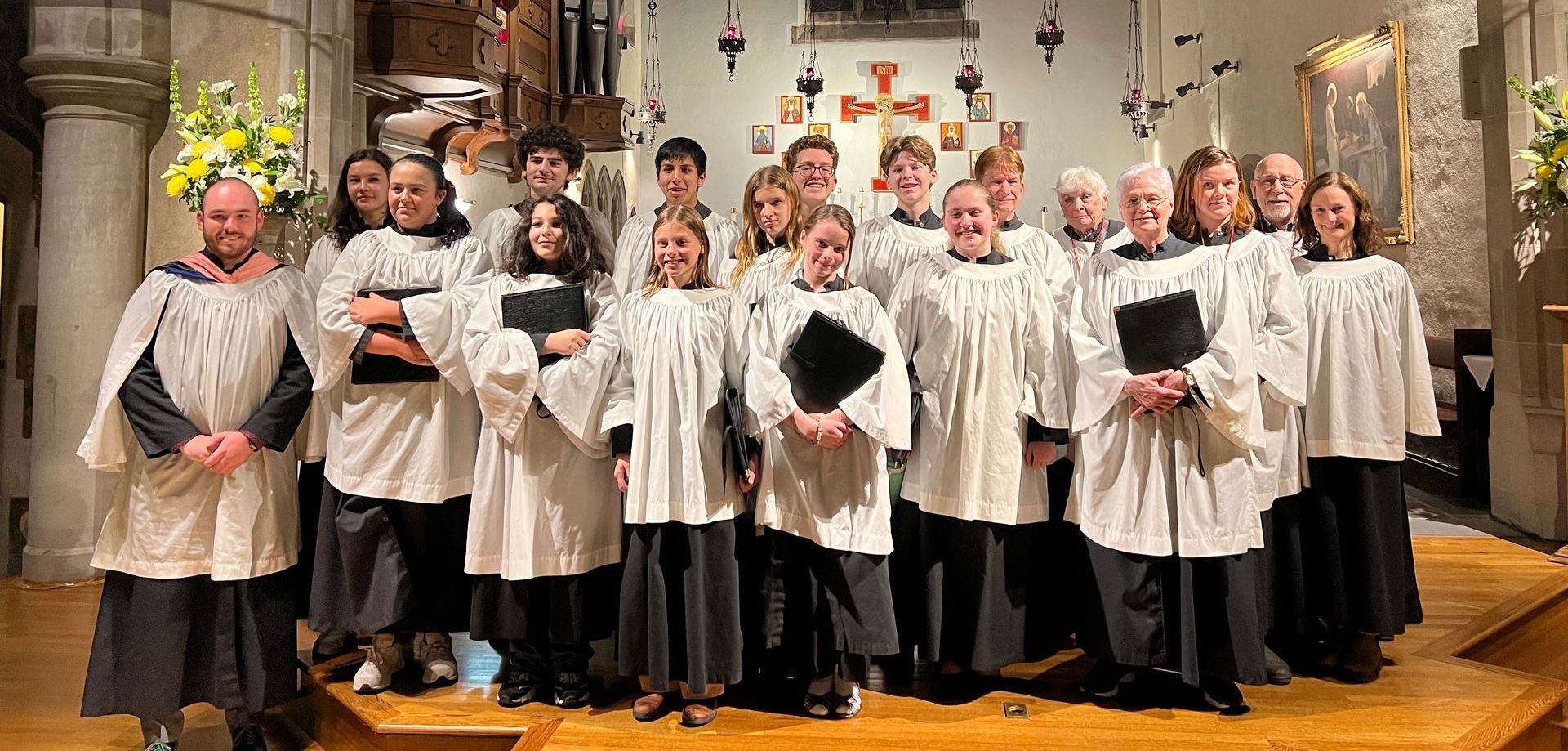Men's Group
St. Paul's Men's Group
Men in our society generally have a very difficult time opening up to have meaningful conversations about their feelings and important life issues. The Men's Group at St. Paul's endeavors to cultivate friendships and foster meaningful connections within the group, and learn community building skills that can extend into the parish community and beyond!
Men of all ages are invited to gather in the Guild Room at 10 am on the second Saturday of the month for lively discussions in a safe space. Sharing stories, questions, concerns, and thoughts is a great and fun way to build community. For more information, contact the parish office.
You might also like

Music at St. Paul's Choirs Adult volunteers and the St. Paul’s Choristers and Choral Scholars come together to lead the hymns and anthems at worship each Sunday. The choirs also participate in concerts, special services such as Evensong, and other events throughout the year. The Compline Choir (separate upper and lower voices choirs) sings chant and polyphony every Sunday night for the 8 PM service of Compline. St. Paul’s maintains a roster of professional singers that are called to sing special services throughout the year. St. Paul’s believes deeply in the power of congregational singing, and so our choir’s primary responsibility is to lead and inspire congregational song. Though we use the Hymnal 1982 as our primary musical resource, we frequently draw from other sources as well. Organ Our 1928 E.M. Skinner organ was installed and enlarged in 1992, and was restored and enlarged in 2007 by the Reuter Organ Company of Lawrence, Kansas. Seasonal recitals featuring talented organists are offered during the year. Visit the Events Calendar for updates. Read more, and see the organ’s specifications. St. Paul’s Chorister Program The St. Paul’s Chorister Program, is open to all children in grades 2 – 8. The Choristers meet weekly to rehearse and sing with the Schola Choir bi-monthly at the 11 am service. Rehearsals incorporate supplemental music education and fun! The program is free to all students and you do not need to be a member of St. Paul’s (or any church!) to participate. St. Paul’s Choral Scholars Program The Choristers are supported by Choral Scholars, high school aged students who often are pursuing musical careers of their own. This program offers an exposure to a wide variety of choral repertoire, and develops skills in sight reading and leadership. A honorarium is available to Scholars. If you would like more information about music and arts programs at St. Paul’s or would be interested in joining the choir contact Josh Ehlebracht at music@stpaulsnorwalk.org .

St. Paul's Juneteenth Celebration has become a major event in the life of the Parish. This year's event will feature a Pot Luck, fun & games and a Gospel Choir - You may even learn a thing or two! Mark your calendar for June 15, at 12:30 and dust off those recipes for the "Food of our Father's" pot luck lunch! June 19th is the day in 1865 in Galveston, Texas when a Union general rode in to inform the city that the institution of slavery had ended and that all enslaved people were from that moment, free. This should not have been a surprise to the enslaved African Americans of Texas since President Lincoln had in fact already issued a proclamation two years earlier, on Jan 1, 1863 liberating all enslaved persons living in Confederate states. But the order carried little weight in Texas, where there were few Union soldiers to enforce it, and where, according to Annette Gordon-Reed in her book “On Juneteenth,” despite the formal surrender of the Confederate General Robert E. Lee two months earlier, the Confederate army continued fighting until mid -May. Many of the enslaved persons in that state therefore continued working for their enslavers, but others we are told by Annette Gordon-Reed “knew the gist of the general order prior to June 19, as Galveston, the largest city in Texas was a port city through which most of the cotton picked and processed in the state was shipped out to the world.” And she stresses, “port cities are prefect vehicles for transmission of information to people of all degrees of literacy.” Ms. Gordon-Reed herself a Texan says: “Two days before General Granger arrived on the island, Black men working on the wharves began to shout in exultation. When asked what they were celebrating, they replied, because they were free.” The news began to spread to other towns but the enslaved had to be careful about openly celebrating as “White in Texas were incensed by what had transpired so much so that some reacted violently to the Blacks’ display of joy at emancipation.” Nevertheless, once the announcement was made in 1865 African Americans in Texas and elsewhere in the United States as the cultural practice spread began to celebrate the day. But though acknowledged by some 47 states and the district of Columbia it is only in 2021 that Juneteenth was made a federal holiday in the United States commemorating the emancipation of enslaved African Americans.


